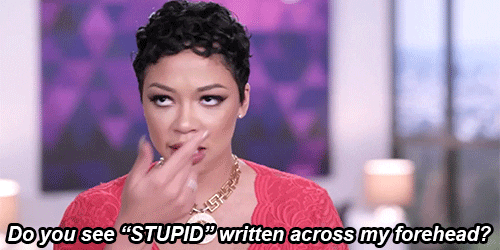A Judge of Her Peers? Judge Dugan Assigned a Judge Previously Rebuked for Political Comments
By: Jonathan Turley | May 21, 2025
Five years ago, I wrote about a federal judge who, in my view, had discarded any resemblance of judicial restraint and judgment in a public screed against Republicans, Donald Trump, and the Supreme Court. The Wisconsin judge represented the final death of irony: a jurist who failed to see the conflict in lashing out at what he called judicial bias in a political diatribe that would have made MSNBC’s Lawrence O’Donnell blush.
His name is Lynn Adelman.
I was wrong in 2020. Irony is very much alive.
This week, a judge was randomly selected to preside at the trial of Milwaukee County Circuit Judge Hannah Dugan. A critic of Trump’s immigration policies, Dugan is accused of obstructing federal law enforcement and facilitating the escape of an unlawful immigrant.
The judge assigned to the Dugan case? You guessed it. Lynn Adelman, 85.
A judge is expected to come to a case like this one without the burden of his own baggage. Judge Adelman is carrying more baggage than Amtrak in Wisconsin.
The selection of Adelman shows how political commentary by judges undermines the legitimacy of the court system. Now, in a case that has divided the nation, the public will have to rely on a judge who discarded his own obligations as a judge to lash out at conservatives, Trump, and conservative jurists.
Adelman was a long-standing Democratic politician who tried repeatedly and unsuccessfully to run for Congress during his 20-year tenure in the Wisconsin Senate. For critics, Adelman never set aside his political agenda after President Bill Clinton nominated him for the federal bench. Adelman was sharply rebuked for ignoring controlling Supreme Court precedent to rule in favor of a Democratic challenge over voting identification rules just before a critical election. Adelman blocked the law before the election despite a Supreme Court case issued years earlier in Crawford v. Marion County Election Board, 553 U.S. 181 (2008), rejecting a similar challenge.
The United States Court of Appeals for the Seventh Circuit issued a stinging reversal, explaining to Adelman that in “our hierarchical judicial system, a district court cannot declare a statute unconstitutional just because he thinks (with or without the support of a political scientist) that the dissent was right and the majority wrong.”
Adelman, however, was apparently undeterred. In 2020, he wrote a law review article for Harvard Law & Policy Review, titled “The Roberts Court’s Assault on Democracy.”
Adelman attacked what he described as a “hard-right majority” that is “actively participating in undermining American democracy.” He also struck out at Trump as “an autocrat… disinclined to buck the wealthy individuals and corporations who control his party.”
Adelman was later admonished by the Civility Committee for the Seventh Circuit Court of Appeals for his public political attacks as “inconsistent with a judge’s duty to promote public confidence in the integrity and impartiality of the judiciary and as reflecting adversely on the judge’s impartiality.”
The costs of such extrajudicial commentary became vividly clear this week. Judge Dugan is being called a “hero” by Democratic politicians and pundits for helping an individual evade federal arrest. At least one judge has pledged to do the same in her courtroom. On the other side, many are appalled by Dugan’s conduct as fundamentally at odds with the role of a jurist in either the state or federal system.
There are weighty issues in the case and the public has a right to expect a fair trial with a judge who will not be swayed by his own political viewpoints. Dugan already had the advantage of a trial before a jury taken from one of the most liberal districts in the country. She will now have a judge who was himself sanctioned for political statements and reversed for ignoring controlling precedent.
This problem is growing within our courts, including at the Supreme Court. I recently wrote about public commentary by Justices Sonia Sotomayor and Elena Kagan that created distractions this month in cases before the Supreme Court. The public has a right to expect more from jurists. The price of the ticket to the bench is to set aside one’s political agenda and political commentary. When you don that robe, you must discard your politics. Some, however, seem to cling to both the bias and the bench.
The message for the public could not be worse this week. In a case involving a Democratic judge accused of discarding basic judicial principles, a random selection produced a Democratic judge reversed for discarding basic judicial principles.
For conservatives, these cases reaffirm a view of a dual-track legal system. Lawfare has been raging in blue cities like New York where President Trump faced judges denounced for their political associations or past commentary. In Washington, Trump was assigned a federal judge who previously appeared to lament that Trump was not a criminal defendant in her courtroom. She was then randomly assigned Trump’s case after he was charged by Special Counsel Jack Smith.
We have the greatest legal system in the world, but it cannot survive long without the faith and support of the public. That is why judicial ethics rules bar not just conflicts of interest but the appearance of a conflict of interest. The perception of political bias robs our courts of their inherent legitimacy and authority for citizens.
Just as Adelman lashed out at most of the Supreme Court as lacking credibility, he can hardly expect conservatives and Republicans to find him a credible choice in the Dugan case. That is why I was wrong five years ago. Irony is not entirely dead. It is just uniformly ignored.
Jonathan Turley is the Shapiro professor of public interest law at George Washington University and the author of “The Indispensable Right: Free Speech in an Age of Rage.”


























You must be logged in to post a comment.